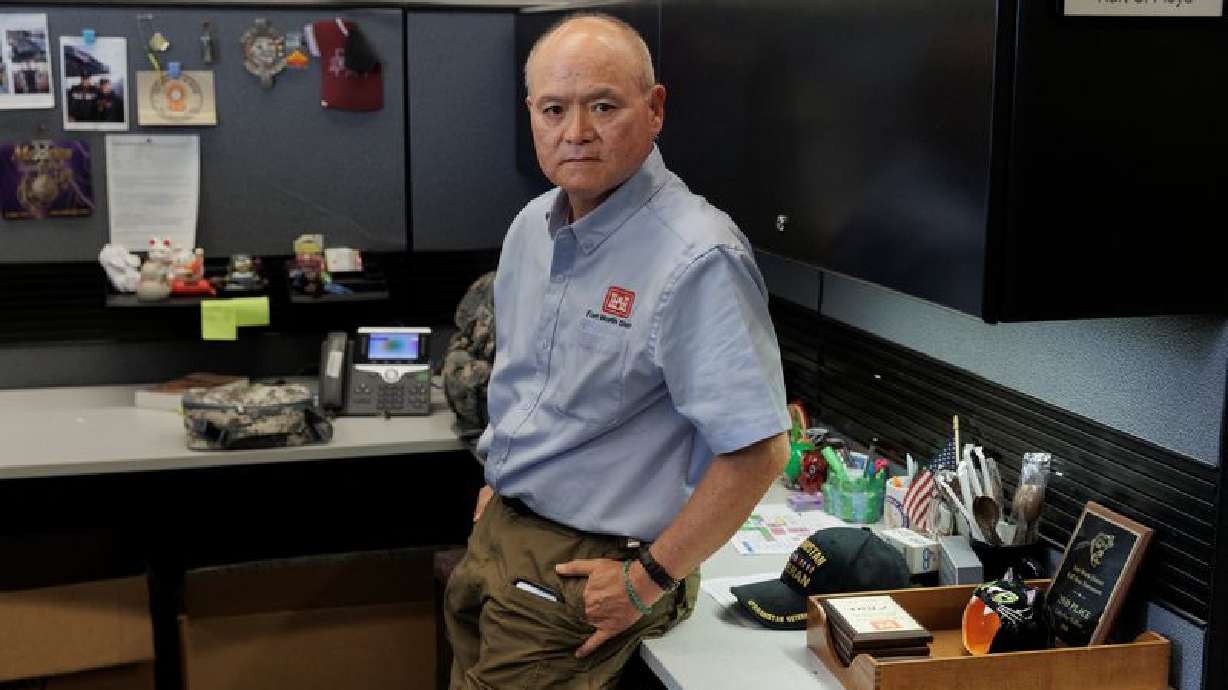
Trump proposed to buy them out. This is the reason they took it
The Office of Personnel Management reports that 75,000 federal employees in the United States accepted a resignation buyout offer, some of whom were prepared to retire otherwise. For others, it was an order to return to the office or the threat of federal labor layoffs.
Many reacted negatively to Donald Trump’s portrayal of the civil service as being overburdened and inefficient, claiming in recent days that they were proud of their job for the government and felt obligated to the American people.
The Trump administration had pledged to compensate employees who voluntarily quit their employment through September 30. The government is seeking a number of measures, including widespread layoffs, to reduce the civilian workforce by 2.3 million. The idea was approved earlier this week by a court.
The tens of thousands of individuals who took the buyout each had their own motivations, and now they must decide whether to take a break, look for a new position, or retire permanently. These five tales are as follows:
“AN UNICORN JOB”
The 27-year-old Fresno, California resident Jourdain Solis accepted the buyout after learning that the Internal Revenue Service program he works for, which verifies adherence to gasoline tax regulations, will be discontinued.
“I really enjoy my work. Solis stated, “I get to choose my own hours and identify the individuals and companies I audit for tax compliance.” “I always travel and have a government car. This job resembles a unicorn.
Since he has worked with the government for five years, Solis stated that he will still receive a tiny pension even if he planned to retire with the IRS. In addition to private sector accounting and administrative roles, he intends to search for state or local jobs. During his free time, Solis wants to see other countries. The government encouraged employees to accept the buyouts by recommending that they go on vacation to their “dream destination.”
In any case, retiring
Kurt Floyd, 62, of Arlington, Texas, accepted the buyout because he intended to retire from the government after 39 years of service. Floyd most recently supported Homeland Security, Immigration and Customs Enforcement, and the U.S. Border Patrol as a program manager.
“I figured why not go ahead and take it, and have a vacation for seven, eight months and be retired,” Floyd explained.
He has served two tours in Afghanistan with the U.S. military and has been with the U.S. Army Corps of Engineers since 1997. The directive to go to work for five days “didn’t bother me a bit,” Floyd claimed, adding that he was already visiting the office twice a week.
Floyd made the decision to accept the buyout with the assistance of a former government employee’s retirement seminar. He has an 11-year-old child and intends to fish and live near home when he retires.
“AN incredibly difficult choice”
Working on contracts at a military installation, Jennifer Mercer, 46, of Hollywood, Maryland, described accepting the buyout as “a really hard decision.”
She remarked, “I cried for many days.”
Mercer said that she was unable to report to work five days a week as directed by Trump and that she accepted the offer because she fears being laid off in the future. She is unable to drop her 10-year-old kid off at school and be in the office by 8:30 a.m. because she is a single mother.
Mercer was still awaiting word on Friday that her resignation had been accepted. She was still seeking clearance for a hybrid schedule.
The billionaire and close Trump buddy Elon Musk is spearheading the administration’s big federal cost-cutting campaign. She added, “It’s an extremely difficult position to put us in, because I don’t trust them, the administration, or Elon Musk.”
“WE ACTUALLY CARE.”
Lafayette, Indiana resident Ken Brown, 63, accepted the buyout since he could not work five days a week at the office. His employment required him to be in the office four times per two-week pay period, so he had been paying for his own commute from Indiana to the D.C. region prior to the return-to-office order.
Although Brown had been open to continuing that trip for a few more years, he stated that coming to work five days a week was “not an option for me.” At Health and Human Services, he assists in providing healthcare to those without insurance, those who are isolated, or those who are at risk for illness.
“I truly enjoy my job. “This is the thing that is being overlooked in the negative coverage of the federal workforce,” he stated. “We truly care about the work we do on behalf of the American people.”
“Losing a career”
Virginia Beach resident Constantine Kiriakou, 37, a Department of State employee, intended to accept the government’s offer of a buyout. Following recent layoffs that resulted in his wife losing her position at the U.S. Agency for International Development, he struggled with the choice. Three young daughters are the couple’s children.
Kiriakou had been keeping up with the news on Wednesday night that the judge was considering the buyout. He was awaiting word on the revised acceptance date for the offer.
Later on Wednesday, he got an email informing him that the program was shut down.
“I missed the window,” he texted as an explanation. “Now (I’m) more confused and stressed than ever.”
The absence of a written contract and the tone of the offer made Kiriakou doubt the buyout, but he and his family had relocated to Virginia Beach, so he had intended to accept it. He has been traveling by plane to the D.C. region once every two weeks when he has to visit the workplace.
It would be too expensive to move back to D.C., he remarked.
“I’m not losing a job, I’m losing a career,” stated the man. ‘Move back to D.C.’ is the response that most people have,” Just, it’s not that simple.
With an email stating that he would accept it beyond the deadline, Kiriakou expressed his optimism that he would still have the opportunity to take part in the postponed resignation program. He fears he will have to quit or be laid off otherwise.
He and his spouse have decided to cut expenses and make ends meet by selling one of their automobiles and removing their oldest child from daycare. “Right now we’re doing everything we can to pinch pennies,” stated the man.
All Categories
Recent Posts
Tags
+13162306000
zoneyetu@yahoo.com


